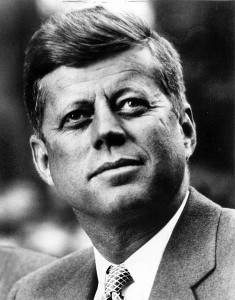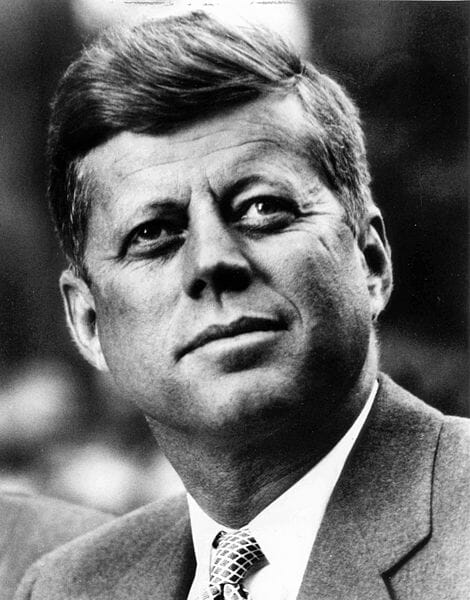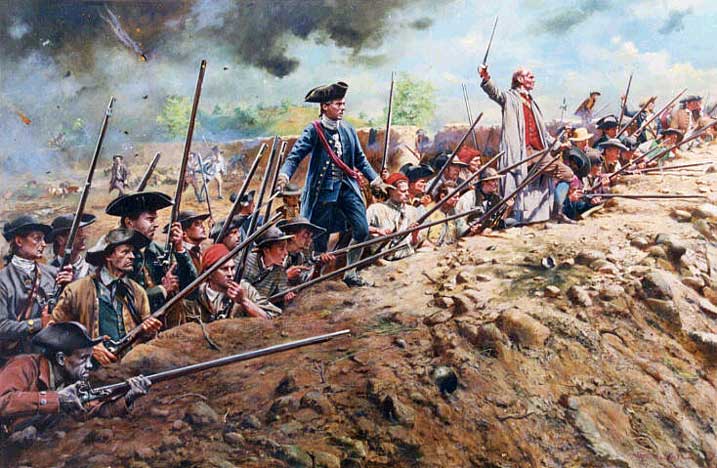 Almost fifty years have passed since President John Fitzgerald Kennedy was assassinated by persons unknown on the streets of Dallas, Texas. To the vast majority of people, this event probably seems like something that happened so long ago that it really has no relevance to events that are occurring today.
Almost fifty years have passed since President John Fitzgerald Kennedy was assassinated by persons unknown on the streets of Dallas, Texas. To the vast majority of people, this event probably seems like something that happened so long ago that it really has no relevance to events that are occurring today.
But whether we realize it or not, the society we live in now has been shaped and determined to a very large extent by the choices, actions, and decisions of those who came before us. While we may pay an occasional homage to the founding fathers, to those who paid the ultimate sacrifice in war, or to the inventors who made important breakthroughs that led to the technologies that now dominate our lives, for the most part we have a very limited awareness of how historically significant events can continue to send transformative waves rippling forward across the oceans of time long after those events actually occurred.
With this concept in mind, here are five ways in which American society and culture have been shaped and changed by the Kennedy assassination.
LBJ Unleashed
Lyndon Baines Johnson, then the Vice President of the U.S., only became president because President Kennedy was killed. This represented quite a turnaround for the Texas politician, considering that President Kennedy most likely would have dumped LBJ from the ticket if he had been nominated for re-election in 1964.
Johnson’s profligate Great Society spending strategies, which took the New Deal and accelerated it into hyper-drive, helped to dramatically alter the government’s role in the social and economic lives of its citizens. It was during the Johnson administration that the federal government we all know and love truly came into being, and the enduring image we have of bloated bureaucracies ineptly trying to solve every social problem under the sun by throwing money at it can be traced directly to the LBJ era. Johnson’s presidency helped expand government dramatically, but it also helped to discredit the idea that government was capable of accomplishing good things. And which of these two results is worse is perhaps a matter to be decided by each individual based on his or her own personal ideology.
Vietnam
Mainstream historians and media types have perpetuated the myth that LBJ’s policies in Vietnam were in complete harmony with JFK’s own intentions. However, in October of 1963, Kennedy issued National Security Action Memorandum (NSAM) 263, which detailed his plan to withdraw U.S. advisers from Vietnam while gradually scaling back our involvement in Southeast Asia. Kennedy had told people privately that he wanted to be out of Vietnam completely by the end of 1965, and NSAM 263 was a carefully worded declaration that revealed his ultimate plan. But within four days of the assassination, Lyndon Johnson had already signed and submitted NSAM 273, which reversed course and basically pledged to stand by the government in South Vietnam come hell or high water. Mainstream analysts have made much of the fact that NSAM 273 was actually drafted by a low-level national security adviser the day before Kennedy was killed, but there is no reason to believe JFK ever knew anything about this document, which completely negated the approach Kennedy had recommended in NSAM 263 just a few weeks earlier.
However things might have played out under Kennedy, we know exactly how they played out under Johnson – 50,000 Americans lost their lives in a futile war that left scars on the collective psyche of this country that may never completely heal.
The Federal Reserve Survives
President Kennedy was not willing to concede total hegemony over the U.S. financial system to the Federal Reserve System. In June of 1963, he signed Executive Order 11110, which authorized the U.S. Treasury to issue certificates backed by silver as an alternative form of money to Federal Reserve notes. This policy injected more than $4 billion into the economy in the few short months before JFK was killed, and if this program had continued, a viable alternative to the Fed could have been created.
But when President Kennedy was killed, LBJ suspended this program immediately, and the Federal Reserve’s control over the U.S. economy has never once been challenged since. As a result, we now have a debt-ridden, under-performing economy where unsustainable bubbles profitable only to the private banking industry have been substituted for real economic growth.
The CIA and Our Culture of Secrecy
Despite President Kennedy’s statement after the Bay of Pigs fiasco that he planned to “splinter the CIA into a thousand pieces and scatter it to the wind,” it appears that what he really wanted was to reform this agency and bring it back under control. There is no question that Kennedy’s death allowed the CIA – which is really just a front organization for big business and the military-industrial complex – to continue its usual shenanigans and preserve its culture of secrecy. And it is this latter characteristic of the intelligence agencies and the national security state in general that have allowed U.S. foreign policy to remain hopelessly corrupted.
Much damage has been done to the reputation of this country because of the actions of intelligence agencies and other military-industrial actors working in secrecy, and the culture that allows these things to go on (and they are still going on today) is not consistent with the kind of transparency, openness, and accountability that a democracy needs to survive.
Bombshell New Book Reveals…How To Survive The Coming Martial Law In America
Mainstream Nonsense and the Mainstream Media
When President Kennedy was assassinated in Dallas on November 22, 1963, the media in this country was faced with a choice – they could either do their jobs and actually investigate this story fairly and honestly to uncover the truth about what had really happened, or they could take the easy way out, look the other way, and help uphold the government’s version of what happened on that tragic and terrible day. Unfortunately, the vast majority of the Fourth Estate took the path of least resistance, and the idea of an independent media that would fearlessly search for the truth no matter where it led died a painful and difficult death.
No one who actually works in the mainstream media will admit they are now functioning as little more than a public relations arm for government, industry, and the national security state. But there is no doubt that the modern media has become the most important guardian and enforcer of status quo thinking on the entire American scene. It is certainly no coincidence that the biggest insult a member of the mainstream media can hurl at anyone today is to dismiss them as a “conspiracy theorist”. Basically, this represents a subliminal recognition on the part of media members that the Kennedy assassination – which is the first thing anyone thinks of when they hear the term “conspiracy theorist” – really was a bifurcation point in their industry, and because their journalistic predecessors chose the path they did, members of the media who want to be considered “respectable” today must continue to go along with the program.
The result of this institutionalized mixture of timidity and perfidy on the part of the mainstream media is that the American people are never really told the truth about anything any more, and if we want to find out what is actually going on we have to go and find out for ourselves.
What If?
Whether most people know it or not, America in 2012 is a far different place than it might have been if President Kennedy had lived and had been able to successfully carry out his agenda. And even if he had been killed, but a real investigation into the assassination had been performed and the truth about who was responsible for this coup d’etat revealed, the resulting fallout would also have changed our country in deep and profound ways.
©2012 Off the Grid News










